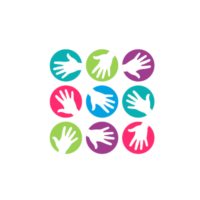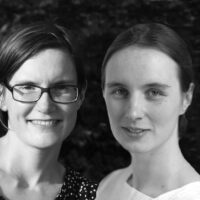Blog
-

Mental health and care-experienced young people: are our mental health support services appealing and accessible?
Children in care are much more likely to experience mental health problems than young people in the general population. Early life experiences, such as abuse, neglect, parental drug-use or violence likely play a major part in this. So too could the instability that is often inherent in the care system.
Read more -

Tribute to phenomenal young campaigner Aisha Hamzat
A few weeks ago we were told about the tragic news of the death of Aisha Hamzat, who, for ACAMH, contributed to a blog and webinar, on predicting complex PTSD in foster care.
Read more -

How to spot and support students who have experienced trauma
Blog from Amy Sayer. “The need to spot and support students who have experienced trauma has become increasingly urgent and necessary within educational settings.”
Read more -

Complex PTSD in young people in care
Aishat Hamzat, Rachel M Hiller and Helen Minnis discuss what research tells us about the mechanisms underlying complex PTSD symptoms experienced by young people in care. They consider implications for treatment and broader support provided for these young people
Read more -

Are ACE scores useful for identifying individuals at risk of health problems?
Clinics are increasingly screening for ACEs, but ACE scores may not tell us who will go on to develop poor health, explain Jessie R Baldwin (pic) and Andrea Danese.
Read more -

PTSD in very young children, and proof-of-concept trial – In Conversation Prof. Tim Dalgleish
The focus of this podcast is on the JCPP paper ‘The early course and treatment of posttraumatic stress disorder in very young children: diagnostic prevalence and predictors in hospital-attending children and a randomized controlled proof-of-concept trial of trauma-focused cognitive therapy, for 3- to 8-year-olds’
Read more -

Genetically informed family research, and anti-racism in mental health research – In Conversation with Dr. Yasmin Ahmadzadeh
We hear how Dr. Yasmin Ahmadzadeh helped to set up the Twins Early Development Study, CoTEDS, her research on genetically informed methods to examine the intergenerational transmission of psychopathology, advice for those considering a part-time PhD, and anti-racism in mental health research.
Read more -

Resilience, Ethnicity and Adolescent Mental Health (REACH) Project – In conversation with Dr. Gemma Knowles
In this podcast we speak to Dr. Gemma Knowles, Research Associate of the Social Epidemiology Research Group at King’s College, London, and part of the REACH Project. REACH stands for Resilience, Ethnicity and Adolescent Mental Health.
Read more -

‘The contribution of complex trauma to psychopathology and cognitive deficits’ – In conversation Dr. Stephanie Lewis
In this podcast we talk to Dr. Stephanie Lewis, Clinical Lecturer in Child and Adolescent Psychiatry at the Institute of Psychiatry, Psychology and Neuroscience (IoPPN), King’s College London. She discusses complex trauma and her paper that was recently published in the British Journal of Psychiatry.
Read more -

‘Wellbeing, COVID-19 & Worries of German CYP’ – In Conversation Dr. Tanya Poulain & Dr. Mandy Vogel
The second in our JCPP Advances podcast series that focus on the papers and editors featured in the publication is with Dr. Tanya Poulain and Dr. Mandy Vogel discuss their paper ‘Well‐being and COVID‐19‐related worries of German children and adolescents: A longitudinal study from pre‐COVID to the end of lockdown in Spring 2020’, and the wider implications that the pandemic has had on the mental health and wellbeing of young people.
Read more
